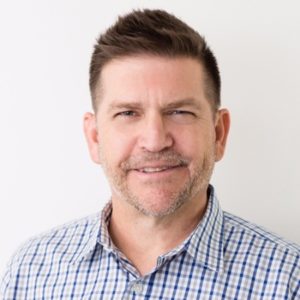Seed Capital
1Mby1M Virtual Accelerator Investor Forum: With Bruce Cleveland of Wildcat Venture Partners (Part 3)
Sramana Mitra: Our customer validation methodology is completely about customer immersion and getting as much feedback even before you write a line of code. What about geography? Are you investing only in Silicon Valley?
Bruce Cleveland: Our partners come from different parts of the country. That makes it interesting. Bryan Stolle comes from Texas. He actually sits on the Board of University of Texas. He represents our southwestern investing. Katherine Barr is a consumer investor, and she comes from Canada. We have a number of Canadian investments.
Bill Ericson and I have a number of San Francisco-based investments, but also we cover the Pacific Northwest. Bill spends a lot of >>>
1Mby1M Virtual Accelerator Investor Forum: With Bruce Cleveland of Wildcat Venture Partners (Part 2)
Sramana Mitra: Our community’s work is with the very early stages. When you say you’re willing to do seed, can you elaborate? What’s happened in the seed ecosystem is that there are 500 to 600 micro VCs that have come into the business in the last five years or so.
That seed ecosystem has fragmented into pre-seed, seed, post-seed, pre-Series A, small Series A, and then the $4 million to $6 million traditional Series A. Where in that continuum do you like to peg yourself when you say you want to invest in seed?
Bruce Cleveland: It’s not around the size of the seed but the rationale for the seed. We like to get to know companies and the >>>
404th 1Mby1M Entrepreneurship Podcast With Investor Waikit Lau
Waikit Lau, investor and serial entrepreneur, has a refreshingly open attitude towards investing in very early stage companies. Wonderful conversation.
Podcast: Play in new window | Download
Subscribe: Apple Podcasts | Android | Google Play | Stitcher | TuneIn | RSS
1Mby1M Virtual Accelerator Investor Forum: With Bruce Cleveland of Wildcat Venture Partners (Part 1)

Responding to a popular request, we are now sharing transcripts of our investor podcast interviews in this new series. The following interview with Bruce Cleveland of Wildcat Venture Partners was recorded in January 2018.
Bruce Cleveland, Founding Partner at Wildcat Venture Partners, is one of the early employees at Oracle, as well as a co-founder of Siebel Systems. He is working on a book on The Traction Gap framework that his firm uses in its venture capital practice.
Sramana Mitra: For those of you who may have been around in the early 2000’s, one of the most successful
1Mby1M Virtual Accelerator Investor Forum: With Andrew Cain McClary of KdT Ventures (Part 3)
Sramana Mitra: In your deal flow, what kind of trends are you seeing?
Andrew Cain McClary: On the tools side of things, I feel like everyone feels it’s a prerequisite to put AI or machine learning in whatever they’re doing even when sometimes the datasets are not there for them to include that in a pitch deck. It’s just trying to employ traditional data science techniques. There’s no need for those frontier computational technologies.
I’ve seen quite a bit of traditional tech entrepreneurs who have turned to, what they think, feel, or want to be, impact projects, at which point, you see them switching to biological topics or businesses. I think that’s a wonderful thing. However, they need to be >>>
1Mby1M Virtual Accelerator Investor Forum: With Andrew Cain McClary of KdT Ventures (Part 2)
Sramana Mitra: Just to double-click on what you said, would you fund a company that has a good level of technology and a good understanding of the business, but still needs another half a million to a million for product development?
Andrew Cain McClary: Absolutely. The earlier in the stack I go, the better I understand the company and its goals. In the end, my job is not only to support that entrepreneur but also to return money to my LPs. The larger the opportunity for ownership is, the earlier that you go.
As a true seed investor, I can’t be afraid of going early as long as certain conditions are met around what those real performance benchmarks are going to be to enable future funding as well as where those tailwinds are pushing that company forward. >>>
1Mby1M Virtual Accelerator Investor Forum: With Ira Weiss of Hyde Park Venture Partners (Part 4)
Sramana Mitra: Since 2013, there have been 50,000 to 70,000 seed investments. By seed, I mean the entire spectrum of pre-seed, seed, post-seed, and pre-Series A. That’s a lot of companies. The number of venture-funded companies is still very low. It’s 1,200 to 1,500 and it remains more or less constant.
At the other vector is that there are 500 to 700 micro-VCs of various sizes. There is a lot of capital, but it’s still very difficult to navigate for entrepreneurs. One of the reasons why I’m talking to all of you guys and trying to get some sense of this process is to help the entrepreneurs gain clarity on how to navigate this. >>>
1Mby1M Virtual Accelerator Investor Forum: With Andrew Cain McClary of KdT Ventures (Part 1)

Responding to a popular request, we are now sharing transcripts of our investor podcast interviews in this new series. The following interview with Andrew Cain McClary of KdT Ventures was recorded in January 2018.
Andrew Cain McClary, Founder and Managing Partner at KdT Ventures, is a physician-turned VC. The focus of his investment is biology and related fields.
Sramana Mitra: Tell us about the fund. Tell us about what your investing focus. How big is the fund?
Andrew Cain McClary: It’s useful to start with a little bit of context on my background. I’m a physician by training. I was in the >>>
